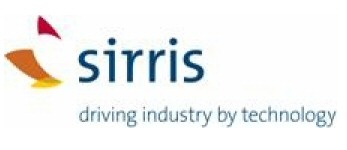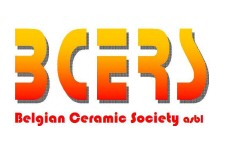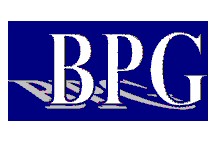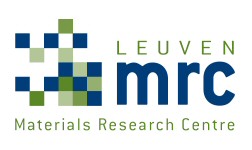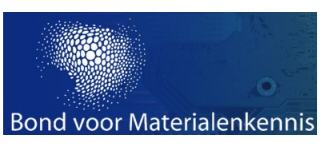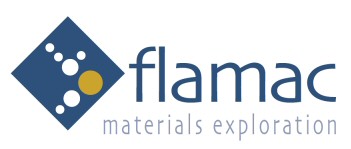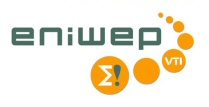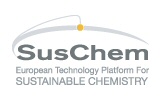Smart Materials for Sustainable Production
Advanced materials technology is a key enabler for sustainable growth in our competitive economy. Strong porous and foam structures allow novel membrane and catalytic processing applications to reduce emissions and enhance industrial processes. Advanced surface treatments enable the environmentally friendly industrial production of ever more compact products, requiring less raw materials, and offering even more functionalities. Tribological improvements result in machinery that dissipate less frictional energy to produce commodities that last longer. Advances in biomaterials result in smarter, economically viable systems to enhance the quality of life. Under the i-SUP2008 theme Smart Materials for Sustainable Production, contributions to this exciting research and development area are welcome for the following session topics:
Theme 1: Production and application of nanomaterials
Nanotechnology is expected to evolve through overlapping stages of industrial prototyping and commercialization. A first route involves the development of passive nanostructures, mainly involving manufactured nanoparticles (metal oxides, quantum dots, carbon nanotubes, etc) serving as raw materials, ingredients or additives in existing products. A second route focuses on active nanostructures that change their size, shape, conductivity or other properties during use. For example, drug-delivery particles that release therapeutic molecules in the body when they target their diseased tissues. Papers are welcomed that describe the synthesis of nanostructured materials and addressing their potential applications and contribution towards sustainable economic development.
Theme 2: Biomaterials for improved quality of life
Material innovations have been at the origin of many important advances in implantable medical devices. Tissue engineering, drug /device combinations and surface modification are key issues in this medical field. The session will contain presentations on bioceramics, hybrid materials, improved porous orthopaedic implants, bio-inspired ceramics, bio-nano coatings and more presentations on materials development for regenerative medicine.
Theme 3: Porous materials for environmental protection
Soot filters, catalytic supports, filters for molten metal, sensors and membranes are only a few examples of the widespread application of porous materials for innovative applications with a beneficial impact on our environment. Both basic research as well as technological development has resulted in novel porous structures through new synthesis routes, improved processing, better characterisation and modelling.
Theme 4: Advanced surface treatments: eliminating solvents by dry processing
Surface treatments are often used to improve the performance of products or components, their useful working lifetimes, aesthetic appearance or economics of production. Typical surface treatment processes are cleaning, etching, sterilisation, chemical activation and coating deposition. The purpose of coating deposition may be to control adhesion and release properties, minimise corrosion, reduce friction and wear, act as a diffusion barrier, provide thermal or electrical insulation, enhance biocompatibility, control optical properties or simply improve the aesthetic appearance for the surface. Papers are invited on developments and applications of innovative solvent free surface treatments using low, intermediate or atmospheric pressure processing technologies. Special attention will go out to plasma assisted chemical vapour deposition processes.
Theme 5: Controlling friction and preventing wear in industrial processing
All aspects of tribology are welcomed including experimental, modelling and theoretical work, as well as case studies. Papers dealing with practical problems and their solutions with respect to wear prevention and frictional effects on functionality and power gain of machines are especially welcome to promote the effective transfer of research results into industrial practice.
Theme 6: Looking at materials at the nano scale
The development of nanomaterials for various fields of applications triggers the need for different characterization techniques able to investigate extremely small volumes and with high spatial resolution. Tools designed for surface analysis, scanning probe techniques, AES, TOF-SIMS and electron beams are only a few examples of possible characterization techniques. Papers, describing useful characterization techniques of nanostructured materials are welcomed.
Members of the Scientific Advisory Board
Theme 1: Production and application of nanomaterials
- Hans Vercammen, Sirris (BE)
- Chris Van Haesendonck, Catholic University of Leuven (BE)
- Klaus Rose, Fraunhofer-Institute for Silicate Research (DE)
- Jules Mullens, Hasselt University (BE)
Theme 2: Biomaterials for improved quality of life
- Jan Schrooten, Catholic University of Leuven (BE)
- Etienne Schacht, Ghent University (BE)
- Jean-Pierre Erauw, Belgian Ceramic Society (BE)
- Hans-Peter Buchkremer, Forschungszentrum Jülich (DE)
Theme 3: Porous materials for environmental protection
- Omer Van der Biest, Catholic University of Leuven (BE)
- Paolo Colombo, University of Padua (IT)
- Thierry Chartier, ENSCI (FR)
- Maiko Naito, Osaka University (JP)
- Rodrigo Moreno, C.S.I.C. (ES)
Theme 4: Advanced surface treatments: eliminating solvents by dry processing
- Chris Leys, Ghent University (BE)
- Annemie Bogaerts, University of Antwerp (BE)
- Richard van de Sanden, Eindhoven University of Technology (NL)
Theme 5: Controlling friction and preventing wear in industrial processing
- Patrick De Baets, Ghent University (BE)
- Jean-Pierre Celis, Catholic University of Leuven (BE)
- Kenneth Holmberg, Technical Research Centre of Finland (FI)
Theme 6: Looking at materials at the nano-scale
- Karel Van Acker, Catholic University of Leuven (BE)
- Stefan Kuypers, JEOL (Europe) B.V. (BE)
Partnerships
- Sirris
- Belgian Ceramic Society
- Belgian Polymer Group
- Leuven Materials Research Centre
- Bond voor Materialenkennis
- Flamac
- Agoria
- Koninklijke Vlaamse Chemische Vereniging
- Laser Centrum Vlaanderen
- SusChem
- Jeol
- Nanoforum
- NanoNews
- FALEX Tribology NV
- ENIWEP
- Flanders DC
- FALEX Tribology NV
- VTI
